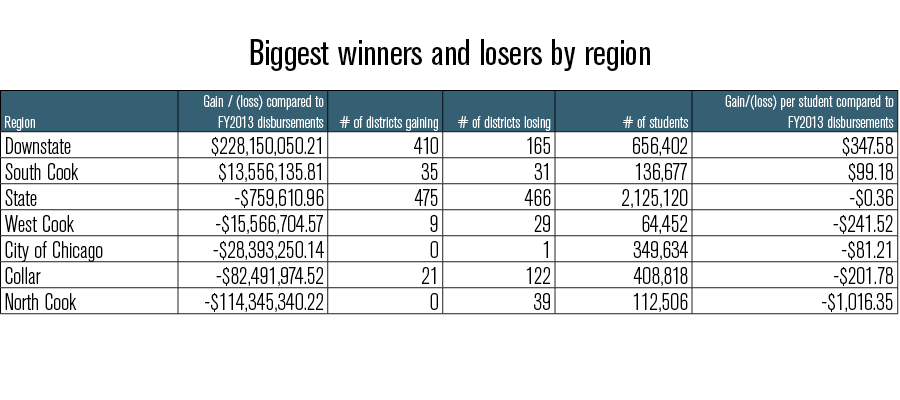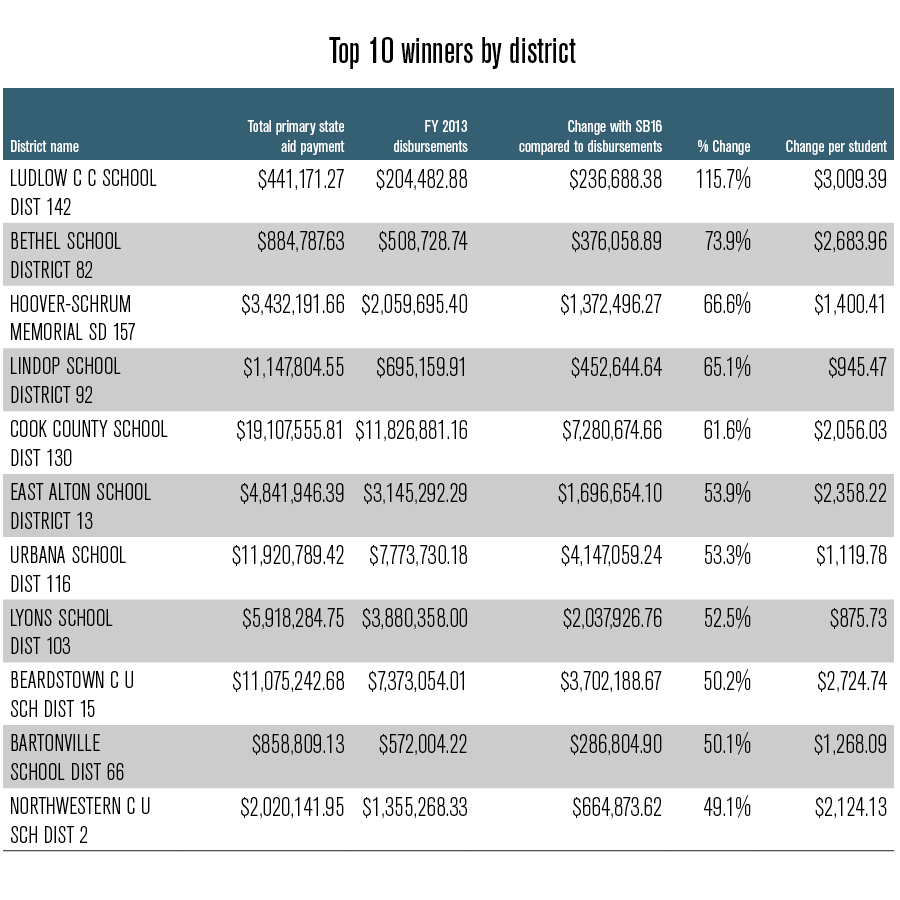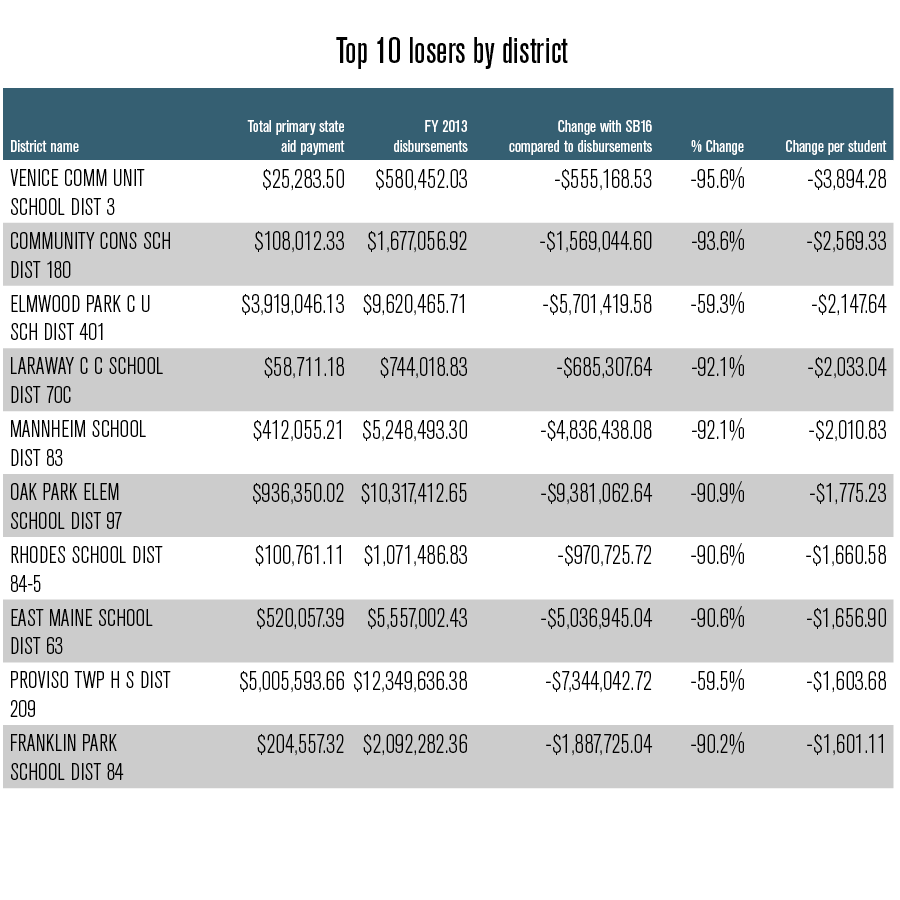The impact of Illinois’ education funding overhaul
After months of hounding by Illinois legislators, the Illinois State Board of Education has finally released a preliminary analysis of Senate Bill 16, a proposed education funding bill that completely transforms how the state distributes money to local districts. Proponents of the bill say the bill makes education funding more equitable. But, as many suburban...
After months of hounding by Illinois legislators, the Illinois State Board of Education has finally released a preliminary analysis of Senate Bill 16, a proposed education funding bill that completely transforms how the state distributes money to local districts.
Proponents of the bill say the bill makes education funding more equitable.
But, as many suburban legislators feared, their districts get hit hard by the changes.
 In fact, districts in the collar counties and western Cook County will lose $200 and $240 per student, respectively, if the bill is signed into law.
In fact, districts in the collar counties and western Cook County will lose $200 and $240 per student, respectively, if the bill is signed into law.
But districts in northern Cook County stand to lose the most – $1,016 per student.
The biggest district winner is Ludlow Champaign County School District 142, which stands to gain $3,009 more per student – a 116 percent increase over the previous formula.
 The biggest district loser is Venice Community Unit School District 3, which stands to lose $3,894 per student – a 96 percent decrease over the previous formula.
The biggest district loser is Venice Community Unit School District 3, which stands to lose $3,894 per student – a 96 percent decrease over the previous formula.
 The Illinois Policy Institute released a report last October that examined Illinois’ General State Aid budget, which SB16 seeks to overhaul.
The Illinois Policy Institute released a report last October that examined Illinois’ General State Aid budget, which SB16 seeks to overhaul.
The Institute recommended subjected more funding to means-testing, which SB16 does. Unfortunately, it seems that the Institute’s other recommendations have fallen on deaf ears.
SB16 does nothing to address the various ways districts can hide their property wealth, which qualifies them to receive more in state aid. It also creates a new carve out for Chicago, allowing the city to deduct its normal pension costs from its property wealth – an action no other district in the state is allowed to do. The result is that Chicago will appear poorer, thus receiving more state money for education.
Additionally, the bill fails to incentivize student growth at the district level, including no language that mandates that a certain percentage of funding be based on student performance.
It also raises new concerns: School districts receive more money the larger their special education population is. In states that have implemented similar reforms, special education populations have increased at a rapid rate. This could lead to schools putting students in special education classes who don’t need to be there.
The most egregious problem with SB16 is that it keeps in place the old district-based system, through which school administrators still control how money is spent.
It’s time that education funding go directly to Illinois families so they can make the best decision for their children when it comes to their education.
That is the only fair and just education system – a system that SB16 fails to provide.